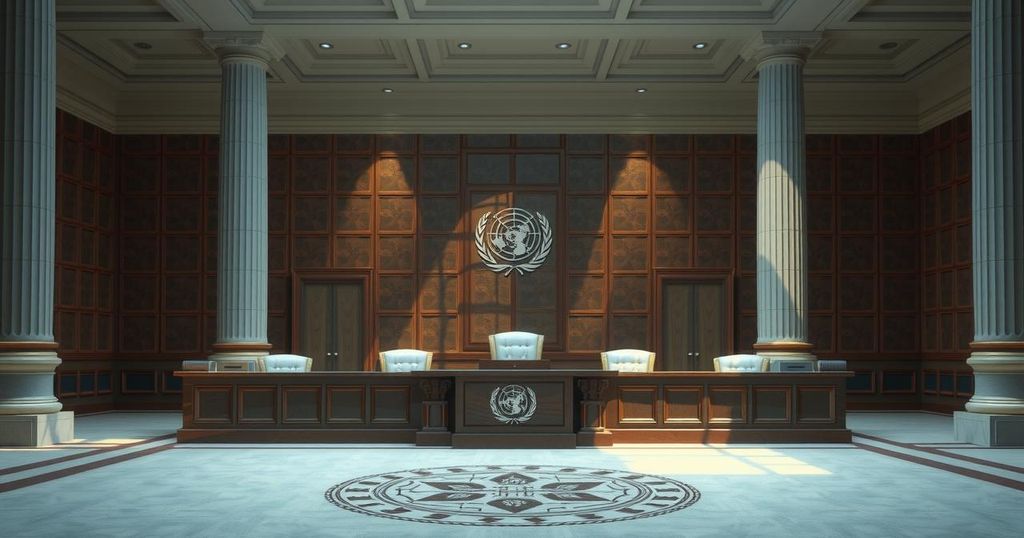Ahmed al-Sharaa Appointed President for Syria’s Transitional Period
Ahmed al-Sharaa has been named the president of Syria for the transitional period after the ousting of Bashar al-Assad. His leadership plans to dissolve the prior governing structures and integrate rebel factions into new state institutions. A Russian delegation has engaged with Syria regarding war reparations and support for national recovery, emphasizing the strategic partnership between both nations.
Ahmed al-Sharaa has been appointed as Syria’s president during the transitional period, according to state media reports. This announcement follows his leadership role in the recent offensive that led to the overthrow of President Bashar al-Assad. Military commander Hassan Abdul Ghani indicated that the existing 2012 constitution has been annulled, alongside the dissolution of the previous parliament, army, and security forces.
In his new role, President Sharaa has been tasked with forming an interim legislative council to guide governance until a new constitution is established. He has also stated that all rebel factions opposing Assad during the civil war will be integrated into state institutions.
The historic announcements were made during a gathering in Damascus, which included commanders of various factions allied against Assad, particularly those from Hayat Tahrir al-Sham (HTS). This group, once affiliated with al-Qaeda, has been characterized as a terrorist organization by multiple international bodies.
Since the onset of the civil war in 2011, initiated by Assad’s violent suppression of pro-democracy protests, over half a million lives have been lost and millions displaced. Following Assad’s resignation and flight to Russia on December 8, an interim government has been assigned to manage national affairs until March.
Additionally, the Syrian government has urged Russia to rectify previous errors by offering war reparations, following the first visit from a senior Kremlin delegation since Assad’s downfall. Discussions between Sharaa and Russian officials involved plans to rebuild trust with the Syrian populace through compensation and reconstruction initiatives.
Russia has expressed unwavering support for Syria’s integrity, while also beginning to withdraw some military resources from its bases along the Mediterranean coast. Despite the decline in military presence, Russia aims to maintain critical strategic footholds in the region.
After the discussions in Damascus, Russian spokesperson Dmitry Peskov acknowledged the importance of continued dialogue with Syria. He refrained from commenting on potential claims regarding the extradition of Assad or financial reparations, opting to maintain focus on fostering relations with the Syrian administration.
Sharaa has emphasized the profound strategic partnership between Syria and Russia and expressed a desire for Russia’s sustained presence that would enhance bilateral relations. He acknowledged that Syria’s military resources are predominantly of Russian origin, highlighting the reliance on Russian expertise for many vital services.
In summary, the appointment of Ahmed al-Sharaa as president signifies a pivotal change in Syria’s governance following the fall of Assad. With plans to restructure the country’s political framework and integrate rebel factions into state systems, the transitional period seeks to establish stability. Russia’s ongoing involvement underscores the complexities of Syria’s recovery and the significance of international relations in shaping the nation’s future.
Original Source: www.bbc.com




Post Comment